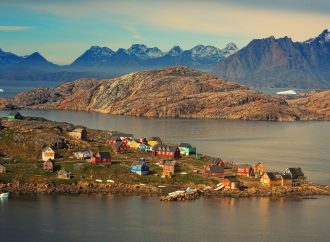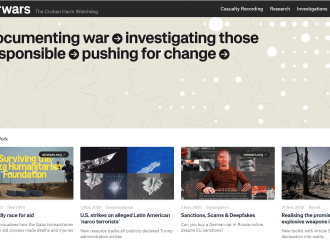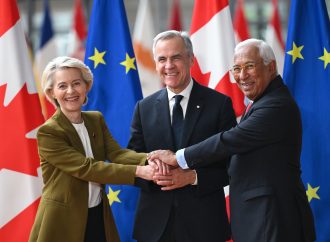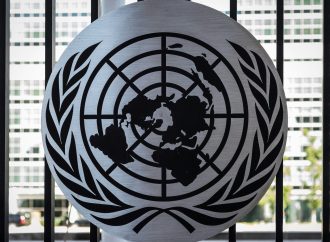The European Union has never not been in crisis. Whether “this time is different”—and “this time” refers to ongoing iterations of the eurozone crisis—is a question that lends itself to all sorts of speculation along the lines of an abstract showdown between ‘economics’ and ‘politics’. For Timothy Garton-Ash, there is a “mismatch” between the two: “The economics are continental, the politics are still national. What’s more, those politics are democratic.” For Slavoj Žižek, to use the ideologically obvious counterexample, the extent to which ‘economics’ trumps ‘politics’ in the current crisis matters not so much for the future of European integration as it does for the development of technocratic governance models “in which bankers and other experts are allowed to demolish democracy.” There is truth in both statements: the world’s largest single market is at once too big to succeed and too big to fail.
The crisis of the single currency has undermined the EU’s foundations, but the edifice is still growing in some parts. This month the EU Foreign Council and the European Parliament will join the European Commission in approving Croatia’s accession the Union, scheduled for July 1st. (Croats voted in European parliament elections this past Sunday.) This will bring the number of member states to 28. By any reasonable measure, EU enlargement, now in its sixth round, has been a remarkable historical process. It is Brussels’s best foreign policy by far, and an essential component of the Union’s Nobel Peace Prize-winning raison d’être.
The demand for “Europe” in Croatia was so high that few Croats complained about the changes in the accession equation or, for that matter, about joining what some regard to be a failed project.
The prospect of membership, arguably more so than membership itself, has profoundly changed virtually every country that once aspired or is currently aspiring to accede. Over time, the accession criteria have become more and more demanding. On the political side alone, EU membership is today conditional not only on items like the quality of democracy and the human rights record, but also on “good neighbourly relations.” What this means in the Croatian case is that successive governments in Zagreb have had to commit themselves to “regional reconciliation” and fully cooperate with the International Criminal Tribunal for former Yugoslavia.
The demand for “Europe” in Croatia was so high that few Croats complained about the changes in the accession equation or, for that matter, about joining what some regard to be a failed project. Many in fact are happy that the bar was not raised even higher. All EU countries are struggling with recession, but on unemployment, competitiveness, credit-worthiness as well as debt and deficit, the 28th member state shares the worst of both ex-communist and southern European worlds. The same applies to corruption and vested interests. The fact that a former prime minister was jailed last year for taking bribes is a testament to the transformative power of EU membership conditionalities, as well as to the depth and breadth of the problem that besets the country.
In principle, EU membership brings more freedom to Croatia, as in the phrase “free movement of goods, services, capital and people.” These freedoms come with caveats; for instance, restrictions on the passport-free Schengen zone and on the movement of labour will continue to apply for at least two more years.
One might add that membership also symbolically frees Croatia from the heavy ex-Yugoslav freight. But there are caveats again. The good neighbourly relations prescribed by Brussels means that responsible Croatian state officials are now expected to say things like “EU Croatia won’t leave Balkans isolated”, while setting examples of good governance at home. When the appeals chamber of the International Criminal Tribunal for the former Yugoslavia (ICTY) acquitted two former Croatian Army generals last fall, the ruling was interpreted to have conclusively legitimized the “homeland war” and the victory over the Croatian Serb rebels and their masters in Belgrade. The country erupted in joy, but its liberals noted that this was a split decision and that the Tribunal was not done with Croatia. IT-04-74 is code for a trial against six high-level Bosnian Croat wartime leaders who are accused of partaking in the “joint criminal enterprise” to ethnically cleanse parts of Bosnia and Herzegovina such that they would be “Croat-dominated, both politically and demographically.” Paragraph 16 of the indictment identifies Croatia’s first president Franjo Tudjman as the leader of the conspiracy. If the prosecutor wins, the homeland war will look a lot less just (and Croat nationalists will go back to vilifying the ICTY).
Much like the rest of the “dark continent”, Croatia will continue to struggle with its past in different ways. Some will resist Europeanization every time “minority rights” expand to allow an introduction of the Serbian Cyrillic alphabet on signs in areas where the Serbs exceed one third of the population, or to integrate the Roma into the schools. Others, by contrast, will point to the fact that Croatia’s hard-fought independence was tainted by rampant ethno-racism and war profiteering as well as embarrassing international isolation. (A small minority might even argue that Tudjman, the veritable “father of the nation,” was basically a tinpot Tito.)
Croatia’s formal accession to the EU coincides with Canada Day. This coincidence will be regarded as fortuitous by thousands who proudly claim dual Croat and Canadian identity (roughly 30,000 of whom are dual citizens), by and thousands more who praise Canada as a handmaiden of Croatian independence. (Croat Canadians performed the lion’s share of state- and economy-building in the 1990’s Croatia; at one point, three out of 18 cabinet ministers in Tudjman’s government were Canadian citizens—one of whom is named in the aforementioned ICTY indictment).
Croats’ enthusiasm for their homeland has occasionally caused headaches in Ottawa (as in the anti-Yugoslav terrorism in 1960s or the Medak Pocket incident of 1993). However, Canadian governments, who like to play diaspora politics for various reasons, tend to reciprocate the discourse of a special relationship. Cheap talk perhaps—but it’s noteworthy that Croat emigrants today much prefer Canada over fellow EU member states and all other destinations.










